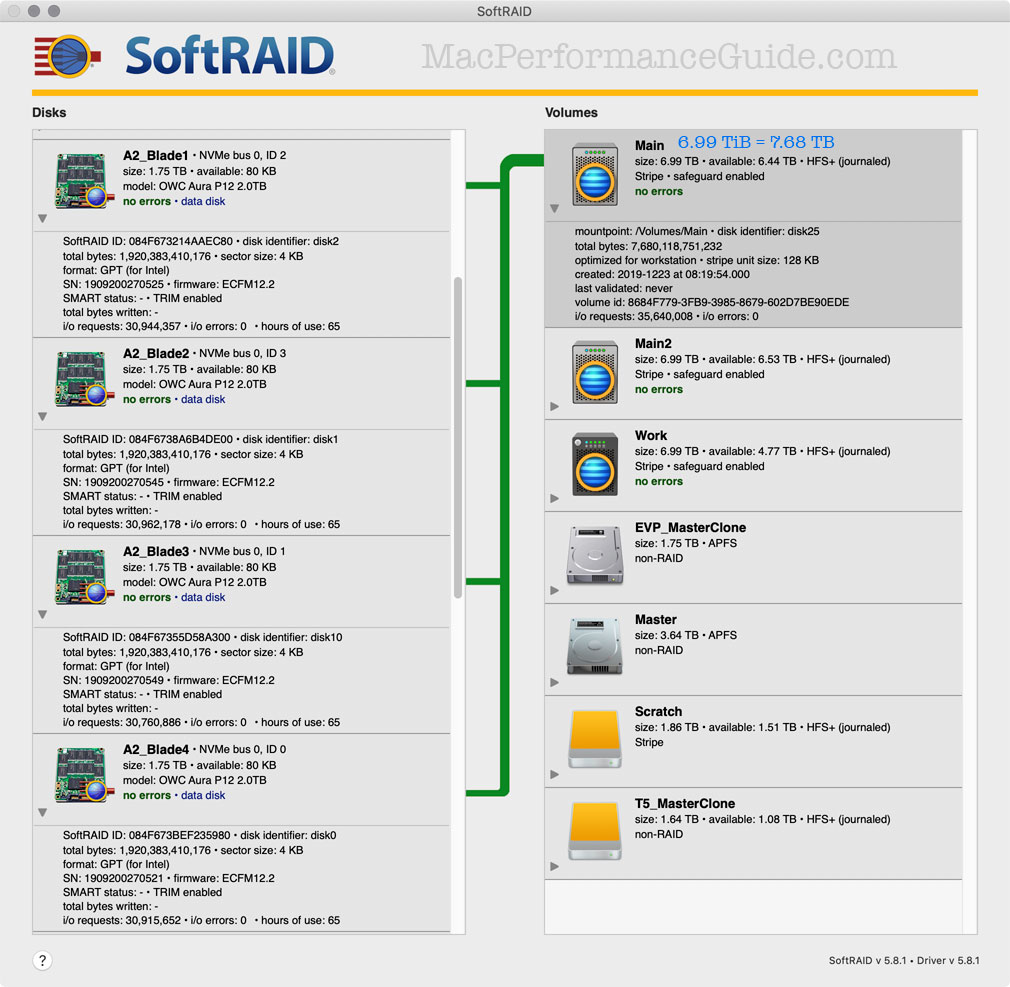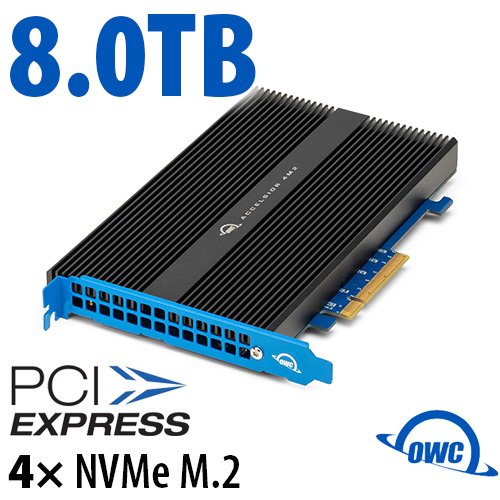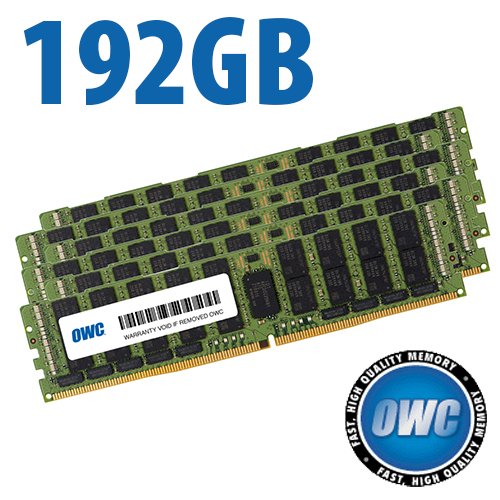OWC Mercury Accelsior M42 PCIe SSD: Running Two of Them Independently — Awesomely Fast (but don’t stripe 8 blades yet)
I am running two 8TB OWC Mercury Accelsior M42 PCIe SSDs in the 2019 Mac Pro. High performance SSDs like this are impossible on any other Mac. I am using them as separate volume, created (as shipped) by striping the 4 blades into a RAID-0, using SoftRAID.
These are awesome, capable of 6 GB/each and supremely fast for large or small transfers. Hardly anything can use that kind of speed, but there are exceptions, such as Integrity Checker.
RAID-0 striping
Note that SoftRAID users must take special steps to allow the current version of the driver to run (installing the latest driver won’t accomplish anything by itself). Turn off by booting into Recovery Mode, then reboot again and allow the SoftRAID driver to load in System Security preferences.
I do not intend to stripe 8 blades across the two cards, because failure of a single blade would mean loss of the volume (in RAID-0 stripe mode).
There is apparently a kernel-panic issue if attempting to stripe all 8 blades of the two cards into one RAID. So don’t do that (for now). SoftRAID folks are going to track it down and fix it.
Also, parallelism is reduced more and more for small files as the number of blades in the stripe is increased—not necessarily a win for mixes of files. For example, if a 128K stripe size is used, there is no striping parallelism with files 128K and smaller—everything is read from one blade. A 256K file still would use only 2 blades, a 512K file 3 blades, etc. For large files all is well, but RAID-0 striping doesn’t help for smaller files.
RAID-4/RAID-5 fault tolerance
For those concerned with fault tolerance, SoftRAID can use the 4 blades in RAID-1 mirror, RAID-4 and RAID-5 parity mode. I think this is a poor choice PCIe SSDs, for several reasons:
- Loss of 1/4 of the usable space in a 4-blade stripe (one blade capacity used for parity).
- Use of RAID-4/RAID-5 incurs parity calculation overhead, using considerable CPU cycles.
- Use of RAID-4/RAID-5 slows write throughput unduly due to the parity calculations, particularly for writes. But it also slows it for reads, since reads come from 3 blades, not 4.
Using 8 blades instead of 4 blades in RAID-4/RAID-5 would double the CPU overhead and have a major impact on speed that largely defeats the value proposition (unless it is purely about a single large fault tolerant volume). If you actually have an application that needs the performance, chewing up a couple of CPU cores this way makes no sense at all.


$1400 SAVE $7600 = 84.0% OWC 8.0TB OWC Accelsior 4M2 PCIe 3.0 NVMe M.2 SSD Storage Soluti… in Storage: PCI
|

$550 SAVE $38 = 6.0% OWC 192.0GB (6 x 32GB) OWC PC23400 DDR4 ECC 2933MHz 288-Pin RDIM… in All Other Categories
|

 diglloydTools™
diglloydTools™






